#hammond song
Explore tagged Tumblr posts
Text
Okay LITERALLY this is a callout post for bitches who go down to hammond
#1 you'll NEVER come back... And honestly...if I can say something real quick....I think you're on the wrong track
And girl ..you KNOW I WILL ALWAYS LOVE YOU....that's not the point of this post...
I'm just saying if you go with that fella...just forget about us binch sksksksks all tea no shade .. that's just throwing yourself away and you aren't even trying so COME ON
Come on
YOURE LYYYYYYYING to me sksksksksk
2 notes
·
View notes
Text
youtube
The Roches featuring Robert Fripp ''Hammond Song''
#hammond song#terre roche#maggie roche#suzzy roche#robert fripp#larry fast#tony levin#jim maelen#art pop#progressive folk#the roches#1979#Youtube
6 notes
·
View notes
Text
current mental state: DO YOUR EYES HAVE AN ANSWER TO THIS SONG OF MINE ???
#literally nothing hits the way this does😭😭😭😭#truly an otherworldly song#hammond song#the roches#Spotify
6 notes
·
View notes
Text
If you go down to Hammond, you'll never come back.
#listening to the roches is the equivalent of running your soul through a carwash#your soul has dead bugs on the windshield that need seeing to#i promise#the roches#hammond song#music#Spotify
4 notes
·
View notes
Text

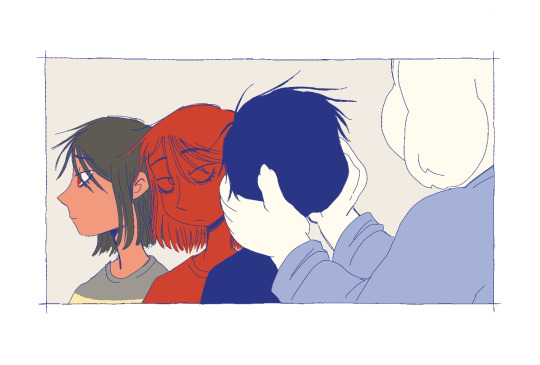
we'll always love you, but
that's not the point
#(lyric from hammond song by the roches)#deltarune#kris dreemurr#toriel dreemurr#asgore dreemurr#art tag#sometimes the spirit of a song possesses me and i cant stop until i finish drawing something about it
8K notes
·
View notes
Text

wont see you again
well, not for a while
#this is soooo old its from like august probably#cant believe i forgot to post it#petscop#petscop art#petscop rainer#rainer hammond#weirdcore#dreamcore#liminal#liminal space#unreality#eyes#my art#bilder fra likhuset#my edit#song is costume by fox academy
246 notes
·
View notes
Text
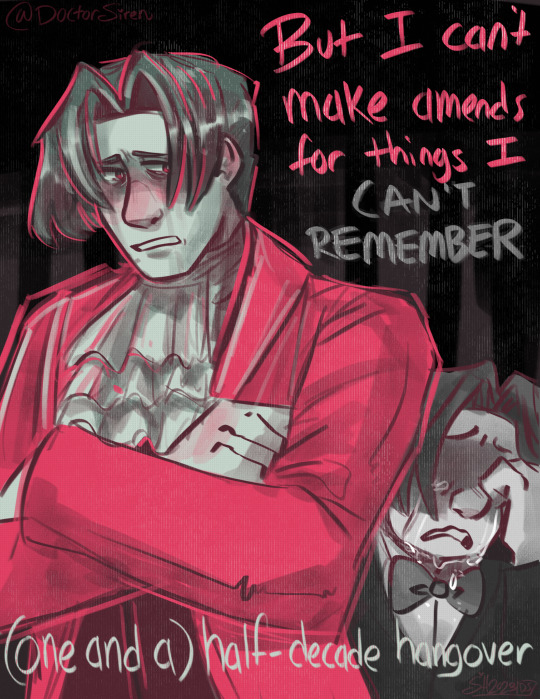
“Guess you’ll just have to take my word that I’ve changed”
#doctorsiren#ace attorney#miles edgeworth#dl 6 incident#will wood#half decade hangover#ace attorney fanart#Will Wood Ace Attorney#art#digital art#my art#fanart#procreate#OKAY BUT GET IT??!?!#the song’s called Half-Decade Hangover#and the DL-6 incident happened 15 years before the Hammond case#so it’s a (one and a) half-decade hangover#💥💥💥 HEHE#I’m learning that the venn diagram of will wood fans and ace attorney fans is a circle#also I used a number generator to tell me what colour palette I should use and the one I got was literally perfect for Edgeworth 💥#ALSO!!!! HE’S FOLDING HIS ARMS AND CLUTCHING ONTO HIS SLEEVE LIKE VON KARMA DOES#I am so evil >:)
660 notes
·
View notes
Text
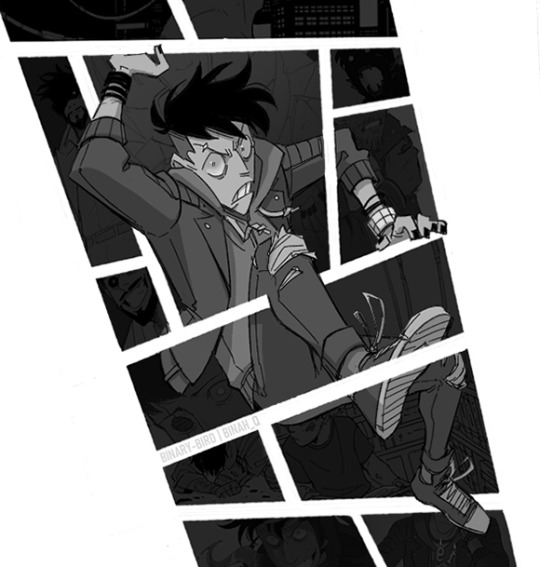
18 Numb - Waterparks
#david hammond#fistfighting the gutter once again#i tried to match the energy of the song#and then i went overboard LOL#spotify 100#YEP STILL AT IT#drafted a lot and chipping away at them
229 notes
·
View notes
Text

The Strokes - Hard to Explain
#the strokes#julian casablancas#albert hammond jr#nikolai fraiture#fabrizio moretti#fab moretti#nick valensi#art#doodle#doodles#mspaint#I DIDNT KNOW THE STROKES SG POSTER WAS IN REFERENCE TO THIS SONG FUUUUUCK NOW I WANT THE POSTER SO BAD ok im normal again#no im not paying that much for a poster#evil takes over me#maybe one day#strokescol
58 notes
·
View notes
Text




the strokes for player japan, february 2006 / no. 480
First Impressions of Earth: The Strokes
The Strokes have assimilated rock, pop and revival music! Their new album "First Impression of Earth" is about to be released, which is sure to be their masterpiece!
Interview by HISASHI MURAKAMI
The Strokes have completed their long-awaited third album, "First Impressions of Earth" (BMG JAPAN 1/1 release). The first impression (First Impressions) is that they're serious about it! And they're ambitious. While retaining their style up until now, they want to go further in all directions! This work overwhelmingly conveys their spirit.
This interview was conducted the day before their live show after their sudden visit to Japan in November. At this point, only eight songs had been released, and the interview was conducted under such circumstances, but they performed many new songs at the live show. They seemed more cautious than usual because they were new songs that they were not familiar with, and I noticed while watching the live show that Nick was playing most of the lead guitar from this time on. This time, I interviewed the two guitarists, Nick Valensi and Albert Hammond Jr. (son of singer-songwriter Albert Hammond). Nick spoke logically, while Albert tried to convey something emotionally. They are contrasting, but both of them talked a lot, and by the end, I was saying, "Oh, that's it already?", and the time passed by so quickly.
Everyone wanted to do something different.
When did you arrive in Japan?
Albert: I left New York on Monday, and arrived here on Tuesday (two days before the interview), so I'm currently experiencing some pretty severe jet lag (laughs).
This time you're coming to Japan as part of your world tour.
AL: Yes, it's part of a world promotional tour, but it's quite different to a real tour.
Nick: Player is a guitar magazine, right? That's great. (unfolding a photo of a Gretsch guitar from the December issue of the magazine) Wow, beautiful!
It's a bit surprising to do a promotional tour like this, since it's the first time you’ve ever done it.
Nick: It's our first time. It's a bit of a new venture. We're not very good at promoting our music. We can play it pretty well, we can record it pretty well, but we're not very good at promoting it. We're not very good at selling our albums. But this time, we're just going to give it our all.
I listened to eight songs from your new album, First Impressions of Earth, and since it was only once I can't really say much about it, but please feel free to talk about it.
Albert: Yeah, we definitely have a lot to talk about.
Nick: But I think you should hear it more than just once.
Albert: Yeah, I don't think you can get it in one go.
Anyway, this album actually has a lot of different sounds in it, so it's hard to grasp them all in one listen...
Albert: See? (laughs)
(Laughs) So, this time you used a different producer, but first of all, could you tell us how you prepared for the production?
Nick: Well, that's Albert.
Albert: Yes, this time we were recording and writing at the same time. We just went into the studio and started recording. That's how it was.
Before you started recording, did you have any discussion about the kind of album you wanted to make?
Albert: We started recording demos, and then we started writing songs, and we started buying equipment, and we started building our own recording studio…it was pretty much like that. Then Dave (Kahne) came over to mix it, and we started recording under his direction. He ended up producing the album. I think we probably talked about a lot of stuff, but I don't remember it at all (laughs). I don't think we went straight into the studio and recorded it. Isn't that right, Nick?
Nick: Yeah, I think we talked about it, but I don't think we had any set goals. We didn't all get together and say, "Hey, what kind of album should we make?" But even without that conversation, it was clear, even without saying it, that we all wanted to do something different. No one wanted to make another Room on Fire or Is This It. We all wanted to take it to the next level. That was something we all knew, even without saying it.
Is that why you didn't go on a big world tour after your last album?
Nick: No, that's not it. The reason we didn't do a world tour had nothing to do with this album, it was just because it would have been too hard for the band to stay healthy if we continued to tour. You know, the longer you tour, the more sacrifices you make. But we haven't really been touring in over a year now, so right now we're kind of ready to drop everything and get to tour as soon as possible. Yeah, we're ready to go.
What was the mood within the band when you started recording the album? Were you exhausted?
Nick: No, I had a lot of time off before that, so I was pretty relaxed. So when we decided to start recording this album, we were able to get right into recording, writing, and arranging.
Albert: After a year and a half of touring, it's important to relax at home, right? And we did just that. Just being at home is a relief (laughs).
Is it normal for you to write and record at the same time?
Nick: No, this is the first time we’ve done it like this.
So why this time?
Nick: For the first two albums, we recorded songs that we had written before. We went into the recording studio and did it in about a month, and that was it. But with this album, it was completely different. We started by building our own studio, or rather, our studio space, so when we went into the studio, we had zero songs. Then, it took a day, and we finally had a song that we could all play together. Then, after we finished recording that song, we started working on the next one, and so we worked on it one song at a time. That way, we wrote and recorded each song separately, so it took a long time, but it was worth it. We had a lot of time and no pressure. When we recorded Room on Fire, because the first album got so much attention...but the material wasn't ready...we got so much attention that we didn't deserve, so there was a lot of pressure and pressure to get new material together quickly. In comparison, this time I didn't get any phone calls from magazine companies asking things like, "What's going on with the new body work? When will it be released?"
Really?
Nick: Yeah, not as much as it used to be. I feel like people are less on our radar, but that's been good for us because it's allowed us to just focus on the music.
When you released your second album, did it seem like the media and fans were getting carried away with the hype?
Albert: We were living in a weird world. It’s hard to balance that with the normal world. You forget what's normal (laughs).
We were on the opposite path to Dave.
It seems like you could really take your time this time, but how long did it actually take to produce the album?
Nick: About 10 months.
Have those 10 months been smooth sailing or have they been difficult?
Nick: Sometimes it was smooth and very natural, but sometimes it was painful.
Albert: Yes, there were so many things that I can't put it into words. It depends on the day and the song. Some songs are really stubborn and unruly (laughs).
Nick: I had a hard time getting into good form at first, and it took quite a while for me to get back into good form.
Do you have any go-to cover songs to warm up to?
Nick: ... We don't, do we? It would be fun if we did. Maybe someday.
But you do do covers.
Nick: Sometimes. Like covers of The Clash or Guided by Voices songs. But that's about it. Those are the only two songs we've covered (laughs). We're not the type of band that likes to cover songs anyway. The songs that we want to cover are usually really good to begin with, so if we try to do something bad to them, it doesn't work. The only times we think it's okay to cover a song are when we can add something to it and make it better. That's rare.
This time, you've hired David Kahne as your producer. He has a long career and a reputation, and he's worked with big artists like Paul McCartney and Sugar Ray...
Albert: (laughing)
Ah, is it okay to laugh? (laughs) Anyway... please tell us why you chose him and what you thought about it.
Albert: We were just trying to figure out how to get a different sound, and then he came along... I didn't think he was a good fit for us at all, but Gordon (Raphael, producer of the previous two albums) and Dave are complete opposites, so I thought it would be an interesting experiment. In the end, we were on the opposite path to Dave, and I think that created an interesting contrast.
So it doesn't seem like you agreed on everything as you went along.
Nick: Yeah, that’s right. But I think it's important, and I think it's helped us grow. It's not enough to just keep saying "yes, yes" all the time. He really pushed us forward. I used to have preconceived notions that just being a producer was a little scary.
You started out with Nigel Godrich on the previous album, didn't you? Well, then you went back to Gordon.
Albert: We did it with Nigel because we were hoping he would do something cool with us like he did with Radiohead. Not to do with us what he did with Radiohead, because we're not Radiohead (laughs). With Dave, when he came to our studio, he tried to do something with us that he wouldn't normally do with other artists. And in terms of contrast, we were totally different.
After working with Nigel in the previous film, you went back to Gordon.
Albert: We were running out of time working with Nigel, so we decided to try working with Gordon for a month. We knew Gordon really well, and it went really well, so we ended up going with Gordon.
Of course the second album was great too, but it seemed like you didn't take any risks?
Albert: Yeah, I get that. But we just didn't have the opportunity to take any risks. We had a year and a half to prepare for the first album, whereas for the second one we were recording 15 hour days, touring, and we just didn't have enough time. And we were kind of crazy... can I say that? (laughs)
Nick: We didn't make Room on Fire, Is This It or this album with the idea of taking risks. Rather, we just make what we want to make and what we want to hear. I think if we make music with that approach, we'll be successful. Fortunately, our taste in music is not bad, so if we just follow that, we don't have to worry about other people's tastes or the risks we take. In short, we just want to make a good album. And no matter what kind of record we make, some people will think that the other album was better because it was edgier and riskier, and others will think that this album is easier on the ears, so in the end, I think the only thing we can do is make music that we're satisfied with.
Albert: If you like the five of us, then it’s fine.
Nick: If you like the five of us, that means there are at least other people out there like us (laughs). But Abraham Lincoln said something like, "If you can please a few people…” blah blah blah. Hmm, I don't remember exactly (laughs).
Did you record any other songs besides the 14 that are on the album?
Nick: We didn't realize this album was going to be this long until the very end. It's almost as long as the last two, it could have been a double album (laughs). We got really into it around the 6th, 7th or 8th track of the recording and just kept going until the 14th track. And we liked all of them, so that's why it turned out to be such a long record. 56 minutes! Is This It was like 30 minutes, and I think Room on Fire was like 31 minutes.
The songs seem to be longer than before.
Nick: Yeah, it's a little long.
Was that because you were making it while recording, and the songs developed and ideas came to you as you were playing?
Albert: No, I think Julian had a lot to do with it.
Nick: I noticed it when I saw the track list for the album. Like, wow, this song is so long! I didn't realize it when I was playing it. I think it has a lot to do with Julian, as Albert said. There are more long lyrics. Songs with four verses. But if the lyrics are deep, I don't think you'll get bored listening to long songs.
The difference in guitar styles is clear.
How do you strike a balance between your two guitars?
Albert: There aren't any clear rules. We play a little bit here and there and exchange detailed opinions like, "What do you think about this?" But it's mostly just a vague idea. For example, even with "Juicebox," you told me to play this bit, and I did it.
Nick: It's hard to put into words because it's so organic and natural.
Albert: And sometimes we switch it up a lot.
Nick: Yes, sometimes we switch back and forth and think about what to do, but sometimes, like "Electricityscape," we just start playing together without thinking about anything. It really varies depending on the song and what Julian writes. Sometimes, like "Red Light," we have a very clear vision and approach it like, "Can you play this?" Other times, Julian only has a rough idea, and we spend about a week exploring different sounds. From about a million options (laughs). What do you think of this? Well, what about this? So the process is completely different depending on the song.
Albert: Also, sometimes it's decided that you play this kind of guitar better, or that guitar sounds better. But I couldn't do that part of "Red Light" (laughs).
What are the major differences between your guitar playing styles?
Nick: We have our differences but we work well together, so I don't think we're at odds with each other.
Albert: We're not Thin Lizzy (laughs).
Nick: Although our styles have some things in common, the differences are pretty clear. I think Albert's style is that he can create a vibe even with something as simple as three chords. And his jangly playing is his style. If his playing is jangly, then mine is more flashy. Albert's playing is prettier.
What’s your favourite guitar part you’ve played in this new album?
Nick: I like my part in "Vision of Division". The two guitars are wildly intertwined, but there are a lot of strange sounds hidden in it. Albert plays a crazy Arabian surf guitar solo, like he's on steroids. But there are also some nice plays, and strange phrases that go up and down mechanically. I've listened to it over 100 times, and I'm still impressed with the guitar playing on that song.
Albert: This might sound a little funny, but I really like the piano part that Nick did on "Ask Me Anything" (laughs). And as for my solo, I guess it would be "Razorblade."
Nick: Oh yeah, I like that one too. It's the third track, kind of Beach Boys-ish, “where did it come from?” kind of vibe. I think it's cool.
Some people have described it as a synth-like guitar; what do you think about that?
Albert: Yeah, I know what you're talking about (pointing at Nick).
Nick: I'm not trying to make it sound like a synth. I'm trying to do something like "Sweet Child of Mine" by Guns N' Roses. You know, I listened to that song to death as a kid, so that tone is stuck in my head. But I'm not using a bunch of crazy effects, I'm just using distortion. That's all it is, and it sounds like a Moog synth. People say that to me all the time. But there's a lot of stuff I can use with those kinds of melodies that are full of sounds!
#my scans#bands#the strokes#julian casablancas#nikolai fraiture#nick valensi#albert hammond jr#fab moretti#fioe era#eye contact#my translations#interviews#been sititng on this for ages sorryy was trying to practice translating the end of the interview..lol#some interesting stuff about their process here i think#and them liking each other's song parts better than their own 😭💔#ok had to change nick calling albert's playing coquettish back to the more direct translate jangly bc bug pointed out that it's an actual#musical term#my bad#coquettish albert lives on in my heart
36 notes
·
View notes
Text

bad sportsmanship !
#my art#i dunno if i posted this here LOL#kinda wanna redraw this#overwatch#ovw#dva#d.va#hana song#hammond#wrecking ball#mspaint#LOL#ow
554 notes
·
View notes
Text
#servant poll#john hammond#sigurd fire emblem#aegon the conqueror#chloe bourgeois#green goblin#jurassic park#fire emblem genealogy of the holy war#a song of ice and fire#miraculous ladybug#marvel
12 notes
·
View notes
Text

so many fish here in the sea
she wanted him, he wanted me
automatic stop (room on fire, 2004)
written by Julian Casablancas & Albert Hammond Jr









I don't wanna be in there with you
I don't wanna be in there without your loving either
one way trigger (comedown machine, 2013)
written by Julian Casablancas & Albert Hammond Jr

julian casablancas & albert hammond jr
#julian casablancas#albert hammond jr#ahj#2000s bands#the strokes#this is my tribute to them#they both wrote those songs too btw aka the fruitiest songs in their catalogue#my posts#my gifs
25 notes
·
View notes
Text
‘Home’ Headcanons - Tank Edition This is a continuation of the headcanons I made a while ago about what the supports would say home means to them, and what that would look like for them but this time with the tank heroes! My asks are open and any/all requests are welcome - enjoy <3
Akande Ogundimu / Doomfist: If you asked Akande where home was for him, or what he thought of when he hears the word home itself, he would tell you it doesn't yet exist. For him, in order to feel at home, he would need total power and domination. On the other hand, the idea of home is for the weak, in his eyes. Akande views the concept of having somewhere as a safe or comforting place as an acceptance of weakness, and he doesn't want to indulge on such pitiful endeavours.
Hana Song / D.Va: Hana's home is with the MEKA squad back in Korea; she misses them and the work relationships she had before joining Overwatch. Sure, the connections she has now might be up to par or better than the ones she had whilst working with the MEKA squad, but there's something comforting about thinking back to that time when she was mainly concerned with protecting Korea as part of their first lines of defence. She misses the culture in Korea too, the spotlight of her celebrity status there, and misses the connections she had whilst working there. It's always going to be her home, even if things have changed since the last time she was there.
ORISA: Orisa's home is Numbani, it's all she's ever truly known and where she was created. She likes to imagine herself there, when she's away. She takes great pride in her country, often gloating about it to others when they try to speak ill of it. Numbani will always be important for her and, if she had it her way, she would die protecting it.
Odessa Stone / Junker Queen: Home for Odessa has been long gone since she was barred from Junkertown, maybe even before that. She misses the outback of Australia, before the riots and the Omnic Crisis. She misses being a young child, able to explore the streets of her home town without worrying about toxic gases or nuclear explosions going on nearby. She wishes sometimes, that things were different and she could return to that state in time. However, she's learned that without that happening, she wouldn't be the woman she is now, so Odessa's grown to move on and learn to love her new home. She values Junkertown for the experiences it gave her, but she'll never truly feel at peace or comfortable knowing how she was treated as a child by the king previously.
Maugaloa Malosi: For Maugaloa, his home is American Samoa - it's more than just a destination for him, and he'd tell you that if you asked him this question. Samoa, for Maugaloa, is important to him and makes him feel accepted, seen, loved and welcomed. The traditions, family connections, cultural values, etc. all are things he truly appreciates about his native country. On the other hand, he might tell you he feels most at home in the wrestling ring, and if he could have it his way he'd still be competing while working for Talon even with his genetic alterations. Being able to show off his physical prowess makes him feel unstoppable, and wrestling was where he was able to do this the most.
Ramattra: Ramattra would tell you point blank that Earth will never have a home for him. He knows that even with laws and regulations passed that would encourage humanity to open their own homes for Omnics to reside with them, there would still be prejudice, power imbalances, and a general feeling of discomfort knowing that humanity could switch at any second regarding their standing on omnic rights. Ramattra is willing to make a home for him and his people, though, even if he has to force humanity to give them one. No one deserves to feel like they aren't safe or comfortable anywhere, and Ramattra will use any means necessary to create a world where him and his people don't feel this way any longer.
Reinhardt Wilhelm: Reinhardt's home is with the crusaders, it's where he felt his most confident and most able in life. He misses his youth, and often looks back on the fonder memories he has of his time with the crusaders. It's important to him, and ever since his mentor, Balderich van Adler, passed away he hasn't been able to feel at home since. The closest he got was when first working with Ana, learning to let someone into his life again, spending nights dancing under the moonlight with her. Otherwise, he would tell you that he's too old to consider such nonsense now.
Mako Rutledge / Roadhog: Similarly to Odessa. Mako would say his home was the outback before the omnic crisis. He's an indigenous Australian, and so he misses being able to visit places that have cultural significance to him without the after effects of the omnic crisis lingering over those places. It's not something he concerns himself with anymore, and it's something he's grown too stubborn to thing about. He likes to consider himself a nomad, having no specific place that ties him down anymore. It's something he thinks to cope with the fact that a lot of his cultural roots are gone, and all that's left is wasteland.
Siebren de Kuiper / Sigma: Siebren's home would definitely be in the stars, analysing their behaviours and watching as they move through space and time with admiration. Siebren has always had a fascination for space, and has always looked to the stars and galaxies for explanations that Earth itself cannot answer. He enjoys thinking about when he dies, that he'll be within the stars at last and fully comfortable to be himself. It's something he's happy to talk about, so long as something doesn't distract him in the process.
Winston: Winston's home is with Dr. Harold Winston on the moon when he was an infant. He misses Harold a lot, and wishes to have that father figure around still who could be proud of the work he's completing with Overwatch. It's something he looks back on with fondness, but he still considers Overwatch his home as well. Winston feels as though his purpose that Harold helped him realise and grow into is finally realised through Overwatch and the work that's being done on missions. It helps motivate him, and remind him of where he came from vs. where he is now.
Hammond / Wrecking Ball: Hammond's home is in the fighting ring, showing off his skills and his expertise in destroying other opponents. He finds the limelight incredibly fulfilling, and it helps motivate him and feel integrated into the world. He'll never admit this, claiming he doesn't know what home is or what humans consider home. Hammond certainly doesn't consider Lunar Colony his home, after what Winston did to him.
Aleksandra Zaryanova / Zarya: Aleksandra's home is Russia, and always will be. She loves the culture, the way her country fought so fiercly against the omnics during the crisis, and loves to tell people who've never visited the best places to go. Sure, she's not happy with the corruption in the government, and how her brute strength was manipulated far after the omnic crisis, but she still feels as though Russia is where her heart belongs, and she values the life lessons that her experiences there brought her. Like Orisa, she would happily die protecting her country, and that's something Aleksandra would always believe and feel.
#akande ogundimu#doomfist#doomfist headcanons#hana song#d.va#d.va headcanons#orisa#orisa headcanons#odessa stone#junker queen#junker queen headcanons#maugaloa malosi#mauga#mauga headcanons#ramattra#ramattra headcanons#reinhardt wilhelm#reinhardt#reinhardt headcanons#mako rutledge#roadhog#roadhog headcanons#siebren de kuiper#sigma#sigma headcanons#winston#winston headcanons#hammond#wrecking ball#wrecking ball headcanons
35 notes
·
View notes
Text

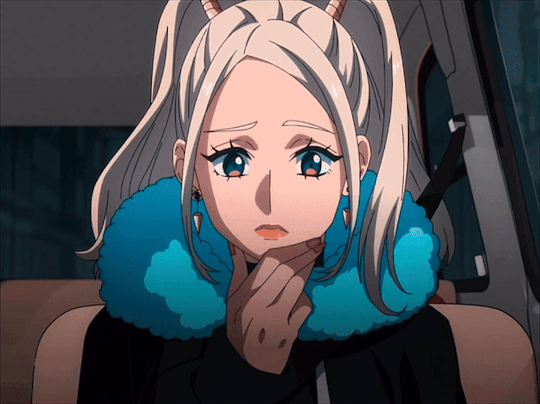


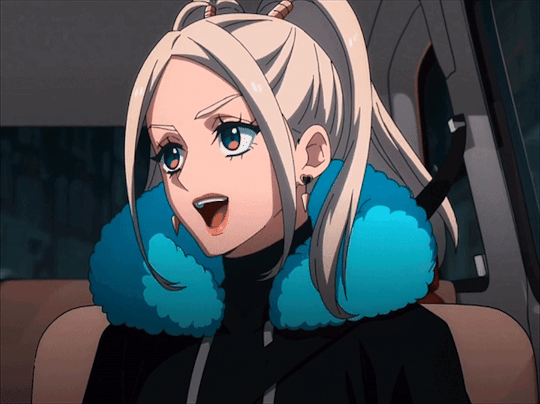

When a girl's in trouble, girlfriends come to her rescue!
#when she turned on the radio and the season one ending song started playing aifjakxhak#i love when an anime does a throwback of their prev op/ed songs lol#i love chelsea actually she's so cute and funny#high card#chelsea hammond#highcardedit#bluee
54 notes
·
View notes